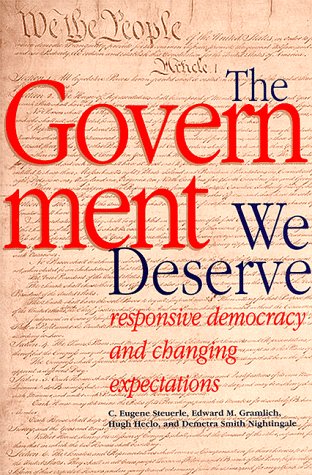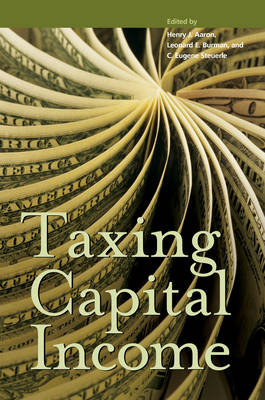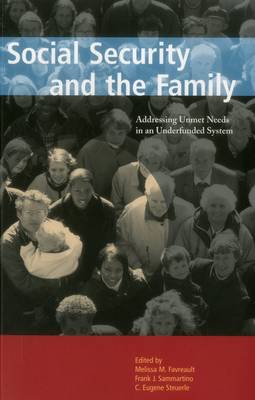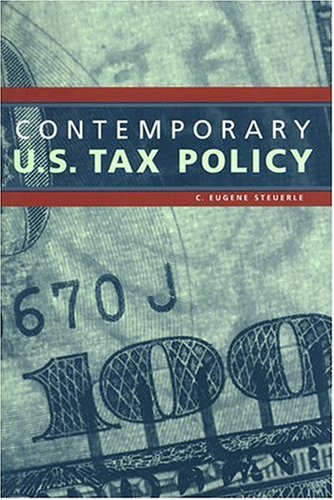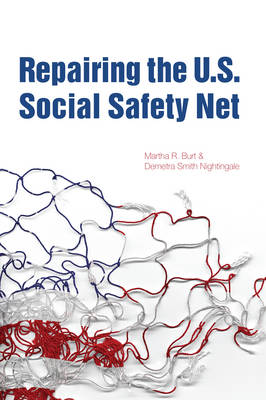Urban Institute Press
10 total works
The Government We Deserve
by C. Eugene Steuerle, Hugh Heclo, Edward Gramlich, and Demetra Smith Nightingale
Retooling Social Security for the 21st Century
by C. Eugene Steuerle and Jon M. Bakija
Reshaping the American Workforce in a Changing Economy
by Harry Holzer and Demetra Smith Nightingale
Taxing Capital Income
by Leonard E. Burman, Henry J. Aaron, and C. Eugene Steuerle
Social Security and the Family
by Frank Sammartino, C. Eugene Steuerle, and Melissa M. Favreault
